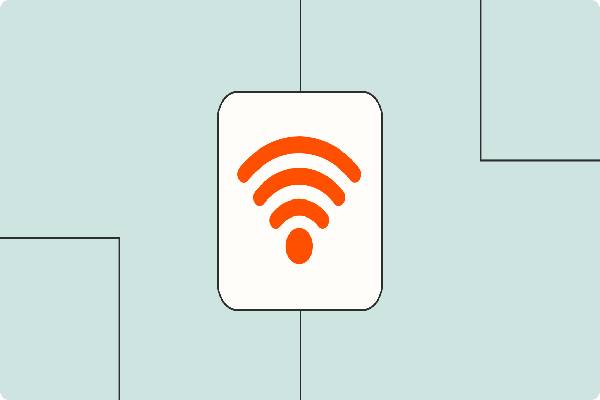mobile apps
Mobile apps are software claims specifically designed to run on mobile plans, such as smartphones and tablets. These apps offer a wide choice of functionalities and features that cater to various needs and interests of users. They can be copied and installed from app stores, which are platforms that provide access to a vast array of apps for different purposes. Mobile apps have become an integral part of modern life, offering convenience, entertainment, productivity, and connectivity.
Here are some reasons why you should consider using mobile apps:
·
Convenience: Mobile apps provide easy access to
information, services, and tools directly from your device's home screen. They
are designed to be user-friendly and efficient, making tasks like shopping,
banking, and communication more convenient.
·
Specialized Functionality: Mobile apps are often
developed to perform specific functions exceptionally well. Whether it's photo
editing, fitness tracking, language learning, or navigation, there's likely an
app tailored to your needs.
·
Offline Access: Many apps allow offline access
to certain features and content. This is particularly useful when you're in
areas with limited or no internet connectivity.
·
Personalization: Mobile apps can be customized
to suit your preferences and needs. You can often set up profiles, choose
settings, and receive personalized recommendations based on your usage
patterns.
·
Enhanced User Experience: Apps are optimized for
touchscreens and mobile interfaces, providing a smoother and more intuitive
user experience compared to accessing the same services through a web browser.
·
Push Notifications: Apps can send drive
notifications to your device, keeping you updated about news, updates, offers,
and important information without needing to actively open the app.
·
Security: Well-developed mobile apps often
prioritize security, protecting your personal data and sensitive information.
They typically utilize encryption and follow security best practices.
·
Entertainment: There is a wide variety of
entertainment apps available, including games, streaming services for music,
movies, and TV shows, as well as social networking platforms.
·
Productivity: Many apps are designed to boost productivity, such as task managers, note-taking apps, calendars, and project
management tools.
·
Accessibility: Mobile apps can provide
accessibility features that cater to users with various disabilities, making
technology more inclusive.
·
Social Connectivity: Social media apps enable
you to connect with friends, family, and colleagues, and stay updated on their
lives.
·
Learning and Education: There are numerous
educational apps that can help you learn new skills, languages, and subjects at
your own pace.
·
Health and Wellness: Health and fitness apps can
help you track your physical activity, monitor your diet, meditate, and manage
your overall well-being.
In summary, mobile apps offer a wide range of benefits,
including convenience, specialized functionality, personalization, and enhanced
user experiences. They have transformed the way we interact with technology,
making it easier and more efficient to accomplish various tasks and stay
connected in our daily lives.
What are the most useful apps ever?
Determining the "most useful" apps ever can be
subjective and reliant on on individual needs and preferences. However, there
are certain apps that have gained widespread popularity and are widely
considered to be highly useful due to their functionality, impact, and
convenience. Here are some of them:
·
Google Maps: An essential navigation app that
provides accurate maps, directions, real-time traffic updates, and even public
transportation information.
·
WhatsApp: A messaging app that permits users to
send text posts, make voice and video calls, share media, and more, all over
the internet.
·
Evernote: A note-taking app that helps you
organize ideas, thoughts, and tasks across various devices. It supports text,
images, audio, and more.
·
Microsoft Office Suite (Word, Excel,
PowerPoint): These productivity apps allow you to create, edit, and view
documents, spreadsheets, and presentations on mobile devices.
·
Dropbox: A cloud storing app that lets you store
and access files from different plans and share them with others.
·
Uber/Lyft: Ride-sharing apps that allow you to
quickly book rides from your current location to your destination.
·
Instagram: A popular social media app focused on
sharing photos and videos with a wide audience.
·
Spotify: A music flowing app that offers a vast
library of songs, playlists, and podcasts.
·
Google Photos: A photo storage and management
app that offers free backup of your photos and videos and includes features
like facial recognition and automatic organization.
·
Waze: A navigation app that provides real-time
traffic updates, community-sourced road information, and alternative routes.
·
Shazam: An app that identifies music tracks by
listening to a short sample of the audio.
·
Pocket: An app that lets you save trainings,
videos, and other content from the web to read or view later, even offline.
·
Duolingo: A language-learning app that offers
interactive lessons and quizzes for a wide range of languages.
·
Headspace: A meditation and mindfulness app that
provides guided meditation sessions and relaxation techniques.
·
Tinder: A dating app that helps you connect with
latent partners based on your preferences and location.
·
Airbnb: An app that lets you book accommodations
and experiences in various locations around the world.
·
Flipboard: A news aggregator app that curates
content from various sources based on your interests.
·
Trello: A project running app that helps you
organize tasks and projects using visual boards and cards.
·
Cam Scanner: An app that turns your device's
camera into a portable file scanner, allowing you to scan and save documents as
PDFs.
·
1Password/LastPass: Password manager apps that
securely store your login credentials and generate strong passwords.


.jpg)